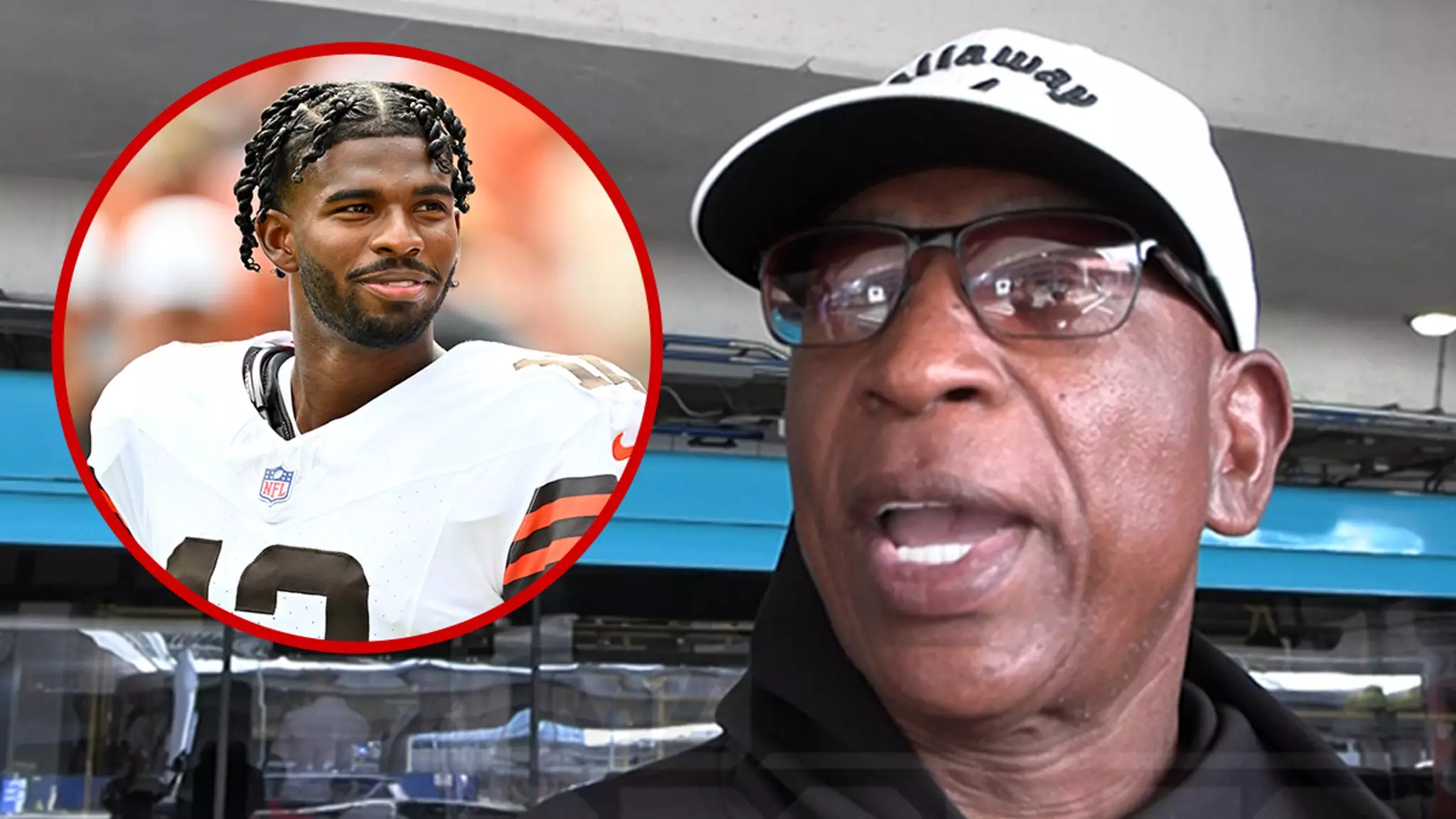Eric Dickerson’s recent comments about the Cleveland Browns and Shedeur Sanders cut through the noise of typical sports commentary. His candidness exposes not just his opinions on individual players but offers a broader critique of NFL organizational decisions and the league’s handling of emerging talent. Rather than holding back, Dickerson boldly voiced frustration with the Browns’ management—particularly their drafting choices and perceived lack of faith in new players like Sanders. His harsh words aren’t just personal opinions; they reflect an underlying concern about the integrity of player development strategies across the league. By openly criticizing the Browns’ track record with quarterbacks and suggesting Sanders might never receive a fair shot, Dickerson underscores how organizational culture and management philosophy can stifle young talent, potentially hindering NFL evolution.
Dissecting the League’s Talent Evaluation and Drafting Philosophy
One of Dickerson’s most provocative claims is that the NFL allegedly ordered teams not to draft Shedeur Sanders. While such allegations are hard to prove without concrete evidence, they spotlight a suspicion many fans and insiders have shared about the league’s approach to new prospects. Is the NFL deliberately obstructing certain players from reaching their full potential? Or is this merely a reflection of distrust in the league’s talent evaluation process? Regardless of the truth, Dickerson’s statement reveals a deeper skepticism about the fairness and transparency behind NFL draft decisions. If true, it exposes a troubling aspect of league management that could undermine player confidence and fan trust. His assertion also echoes broader concerns about whether NFL executives prioritize short-term wins over long-term talent development, which could threaten the league’s reputation as a meritocratic competition.
Impact of Management Bias and Cultural Mismatch on Young Athletes
By criticizing Kevin Stefanski and the Browns’ management, Dickerson points to a common issue in professional sports: team culture and management bias can hinder the growth of promising players. Sanders, hailed as a talented prospect, seems to be caught in a limbo, overlooked or undervalued by a franchise that might lack the vision or willingness to nurture young talent. Dickerson’s hope that Sanders should be released and allowed to shine elsewhere isn’t just about a single player—it raises questions about how NFL teams view potential. Is talent genuinely prioritized, or are organizational biases and existing tanking strategies skewing the process? Young athletes like Sanders often suffer from these systemic issues, which can reduce their chances of fulfilling their true potential and ultimately distort league competitiveness.
Questioning NFL’s Commitment to Player Fairness and Growth
Dickerson’s accusations extend beyond individual teams—they challenge the league’s overall commitment to fairness and the development of its athletes. His claims that NFL insiders actively work against certain players are alarming, as they suggest a league where merit doesn’t always determine success. This perception diminishes the credibility of the NFL as a sport built on skill, dedication, and fair competition. If league management manipulates the system, the integrity of the sport itself is compromised. Moreover, Sanders’ case exemplifies how promising careers can be thwarted not through lack of talent but due to systemic flaws. It begs the question: does the NFL genuinely foster an environment where young, talented players are given equal opportunities to succeed? Dickerson’s dissent hints at a dissonance between the league’s public image and its internal practices.
Eric Dickerson’s outspoken critique taps into a broader debate about transparency within the NFL. His willingness to challenge league practices and management decisions pushes fans and insiders to reassess whether the sport is truly a level playing field or subject to manipulation and bias. As new talents like Shedeur Sanders emerge, the league’s reputation depends on its ability to appear fair, merit-based, and supportive of player growth. If these issues aren’t addressed, the NFL risks losing trust among its most loyal followers, ultimately impacting the integrity and future of professional football.

